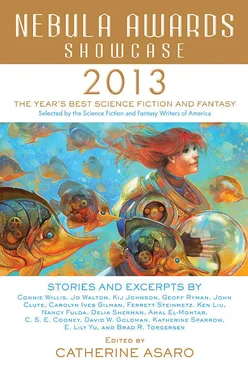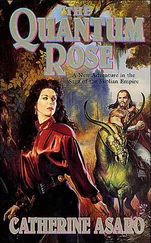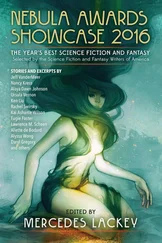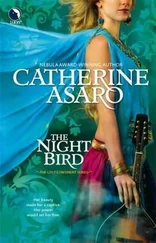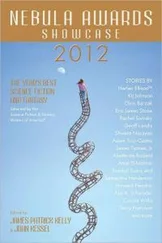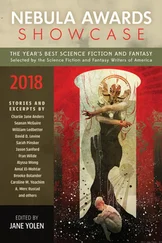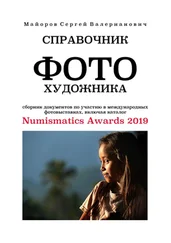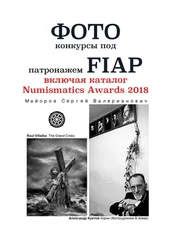Chapter 8
An iron clanging woke Sophie while it was still dark.
“Morning bell,” a child’s voice informed her. “Momi say I supposed take you to Mammy. Can you watch Saxony while I do my chores?”
The mattress crackled as Canny scrambled away. Sophie sat up and rubbed her face. She felt grubby from sleeping in her clothes, hungry, and even more tired than she’d been when she lay down. The adventures of the day before hadn’t been a dream after all. The Creature had really taken her back in time and her ancestors had really mistaken her for a slave. The magic hadn’t ended at midnight or when she went to sleep. It looked like she was stuck in the past until the Creature took her home.
If it even intended to. Maybe, Sophie thought, the Creature was an evil spirit, whose treats were really tricks. Maybe it was laughing itself sick in whatever betwixt and between place it lived. She just hoped leaving her here until the war started wasn’t its idea of a good joke.
She would have liked a real bathroom with running water and Cheerios for breakfast. What she got was an outhouse, a bucket to wash in, and a hunk of cold cornbread, just like everybody else.
The sky grew pearly with dawn. Africa and her men-folk left for work. Canada handed Saxony to Sophie, who held the dark little thing gingerly while Canada rolled up the mattresses and swept the floors with a straw broom nearly as big as she was. By the time everything was tidy, the sun had burned away the mist and Saxony was fussing.
Canada heaved the baby onto her hip. “I fetch Saxy here down to old Auntie Europe—she look out for the picanninies. Then I show you the bestest way to the Big House.”
It had rained in the night, and the morning smelled clean and damp. Sophie waited for Canada on the front steps, scratching at some new bug bites on her leg and trying not to think about whether Mammy would slap her again or if Dr. Fairchild’s Mama was as mean as his wife.
There was certainly plenty to distract her. Chickens scratched and squabbled in the dusty road between the cabins, ignoring scrawny dogs, who ignored them back. From the cabin next door, a tethered goat gazed with yellow, slitted eyes through the fence-slats at the rows of vegetables in Africa’s garden. Birds sang from the oak grove and dipped and soared above the restless cane.
The Good Old Days were sure livelier than the present. Sophie thought she’d like them just fine, if she didn’t have to be a slave.
Then Canada ran up, and it was time to go to the Big House.
Thinking it over, Sophie decided that Canada must be her official magical sidekick and guide. She certainly acted like one—pointing out the fastest shortcuts to the Big House and the yard, warning her what parts of the gardens were off-limits, telling her how to deal with Mammy.
“She bark like a mad dog,” Canny said, “But she don’t hardly ever bite ’less you sass her. You just bend real respectful, say yes’m and no’m and keep you eyes down, and she be happy as a goat in a briar patch.”
Like Miss Ely , Sophie thought, remembering the strict math teacher. It’s just playacting. I don’t really have to mean it. She grinned at Canny, knocked on Mammy’s door, went in, and bobbed politely.
“There you are,” said Mammy. “That headcloth looks like a possum’s been nesting in it.”
Sophie glanced up, caught a fierce dark glare, and looked down again. “I’m sorry. I didn’t have a mirror.”
“Sass and excuses!” Mammy whipped off Sophie’s tignon and refolded it. “If it were up to me, I’d send you right back to Mr. Robert. But Mrs. Fairchild’s a kind, Christian lady and she takes her responsibilities seriously. Just you keep in mind that kind is not the same as weak. Mrs. Fairchild ran this plantation all alone when the Master passed and Dr. Charles was off North learning to be a doctor. She still runs it. She’s not likely to be impressed by a mongrel slave-wench who thinks she’s as good as white folks.” Mammy yanked the tignon tight. “Follow me.”
A few moments later, Sophie was on the gallery of the Big House, curtsying to her five-times great grandmother, Mrs. Charles Fairchild of Oak River Plantation with her eyes fixed on the spreading pool of her wide black skirts. She felt slightly sick.
“So you’re Sophie,” a sweet, slow voice said. “Look up, child. I want to see your face.”
Shyly, Sophie lifted her gaze to a round, rosy face framed by a frilly white cap, a little rosebud mouth, a very unFairchild-like button nose, and clear blue eyes.
“What an adventure you’ve had!” Mrs. Fairchild said merrily. “And how like Mr. Robert not to tell us he was sending you. I’ve written to scold him. Now. What shall we do with you? I suppose you do fancy sewing?”
Sophie considered lying, decided it would lead to disaster. “No, ma’am.”
“We shall have to teach you, then. Dr. Charles tells me you’re well-spoken. What are your accomplishments?”
“Accomplishments, ma’am?”
“Can you dress hair, for instance? Starch and iron?”
What did slaves do, anyway? Sophie wracked her brain for some useful skill. “I like to read. And I won a prize once, for my handwriting.”
“I declare!” Mrs. Fairchild produced a fat leather book from the folds of her dress. “Can you read this?”
The spine was stamped in gold: Little Dorrit , by Charles Dickens. Sophie opened the book eagerly. If there was one thing she was good at, it was reading aloud. Whenever teachers wanted something read in class, she was always the first to be called on. She found the first chapter and began: “ Thirty years ago, Marseilles lay burning in the sun, one day. A blazing sun upon a fierce August day was no greater rarity in southern France then, than at any other time, before or since. —”
“You read very well, child.” Mrs. Fairchild sounded surprised. “Isn’t it just like Robert to have you taught! He never did give a snap of his fingers about the law. What do you think, Mammy?”
“I think she’s next-door to useless. But she can fetch and carry and help Aunt Winney see after your things.”
“You’re right. Winney will be glad of the help, and there’s no one better to train her up as a lady’s maid.” Mrs. Fairchild gave Sophie a friendly smile. “It will be nice to have a bright young face around me. Not dressed like a yard hand, though. You ask Winney if she can find something in that armoire full of gowns Miss Charlotte left behind when she married.”
* * *
Aunt Winney, it turned out, was Mrs. Fairchild’s body servant. She was older and even stouter than her mistress, and couldn’t go up and down stairs without puffing and groaning from the pain in her legs and back. She’d traveled from Virginia to Oak River with the former Miss Caroline Wilkes Berry when she was a bride, which was why, as she told Sophie, she had a Christian name instead of one of them heathenish Oak River names.
“You be grateful you ain’t called New Guinea or Mexico,” the old woman said. “Missy Caro say old Massa’s grandpappy begun it when he buy the firstest slaves for Oak River. He name them Asia, America, Africa, Europe, Australia, and England.”
Aunt Winney reminded Sophie of the old ladies at St. Martin’s, chatty and cozy and full of gossip and pats on the cheek. So what if she was leather-colored and had her hair tied up in a jaunty red-checked tignon? She was friendly and more than happy to answer Sophie’s questions.
“England? The other names are continents. Why not South America or Antarctica?”
Aunt Winney chuckled. “You so sharp, you going cut youself. Old Massa’s grandpappy come from England, that why-for. Now, lets us see what Miss Lotty got you might could wear.”
Читать дальше
